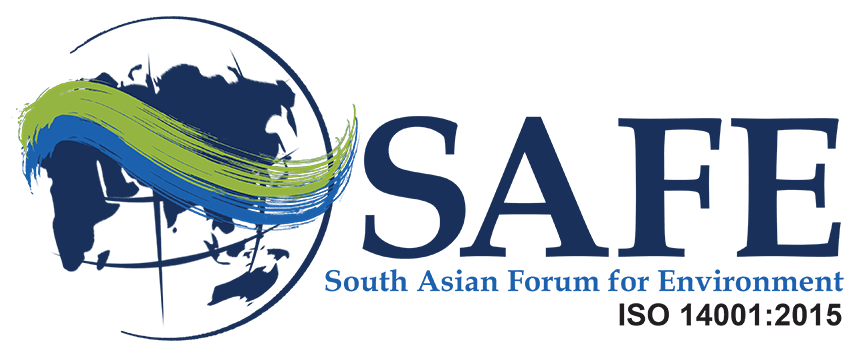Cause Area
Geographies Served
Programs
-
Agroforestry and Mangrove Plantation Programme
District
South 24 Parganas
Kendrapara
Purulia
Sundarbans
States
West Bengal
Arunachal Pradesh
Odisha
Engaging over 7000 households across Eastern and North Eastern areas, SAFE's agroforestry and mangrove plantation initiative spans various regions and activities. Recognized with a national award, SAFE's efforts include post-cyclone agroforestry in West Bengal, watershed agroforestry in Purulia, introducing fruiting plants in Ramsar sites, and pioneering a seed ball campaign for afforestation. The organisation extended its impact to Eastern Bhutan and Western Arunachal Pradesh for forest fire remediation. In ongoing projects, SAFE collaborates with the Global Development Network, GIZ, and Japan Social Development Fund for mangrove restoration in Sundarbans, emphasizing community-based approaches for increased forest cover and climate resilience. Presently, SAFE partners with corporates like Concentrix and HSBC for extensive plantation and carbon stocking in Eastern Indian fallows, with a specific focus on mangrove plantations in the Sundarbans and Bhitarkanika Ramsar sites.
-
Biodiversity Conservation and Wildlife Programme
District
Kolkata
Sundarbans
States
West Bengal
Arunachal Pradesh
Assam
SAFE prioritizes biodiversity conservation through initiatives such as conserving endemic fishes in wetlands and safeguarding indigenous rice germplasms in the Sundarbans. It manages a mangrove nursery, protects Horse-Shoe Crabs, and conducts urban floral biodiversity inventories in Kolkata. In the eastern Himalayas, SAFE conserves black-necked crane habitats and, in the UN-Habitat Restoration decade, restores rainforest habitats, supported by the Prince Bernhard Nature Fund. Actively engaged in the Asian Elephant Conservation consortium, SAFE studies animal-man conflict determinants in bio-corridors, fostering collaboration between the forest department and local communities.
-
Conservation of Wetlands & Ecosystem Services
Prioritizing wetland conservation, SAFE advocates for ecosystem-based adaptation in urban fringes and coastal flood plains, addressing biodiversity, urban poor dependence, and policy gaps. Initiatives include 'Biorights' compensating opportunity costs for wetland conservation through Payments from Ecosystem Services. SAFE aims to sustainably intensify wetland services for marginalized communities, conducting action research through knowledge economy and stakeholder partnerships. The 'Biorights' model, introduced in 2011, highlights circular economic interventions, fostering sustainable human interactions with nature. Conservation interventions provide empirical evidence supporting 'Bio-rights' at the community-ecosystem interface, aligning with climate conventions and sustainable development.
-
Climate Smart Agriculture Programme
District
Sundarbans
States
West Bengal
SAFE introduces hydroponic float farming and aquaculture for climate-resilient agriculture in coastal and riverine floodplains. This initiative combines hydroponic technology, solar desalination, and micro-irrigation in collective farming on inundated rural lands, providing alternative livelihoods for indigenous farmers. The innovative design promotes circular technology transfer for risk spreading, leveraging circular economic benefits through agro-waste recycling for sustainable productivity.
In response to climate vulnerabilities in the Sundarbans, SAFE preserves 54 indigenous rice land races in an in-situ community seed bank. Plot experiments identify high-yield and flood-tolerant varieties distributed to farmers for community seed resilience. Nearly 10 hectares of land now practice organic farming with these seeds. SAFE plans to expand the seed bank's capacity and develop a digital genome library for conservation efforts.
-
WASH Programme
StateStates
West Bengal
Since its inception, SAFE actively promotes green energy solutions and sustainable living. Through initiatives like WASH-US (Water Sanitation and Hygiene for Urban Slums) and NEWS (Nonconventional Energy in Water and Sanitation for Urban Poor), SAFE delivers clean drinking water using solar-powered treatment plants, benefiting 35,000 marginalized individuals in West Bengal and North-East India. This integrated solution operates 24x7, utilizing rainwater harvesting, bio-sanitation, and bio-gas units in a circular model. The innovative circular design of SAFE's solar WASH projects ensures a sustainable, gender-equitable, and climate-adaptive lifestyle for urban poor communities with minimal emission footprint, aligning with the organization's commitment to green energy and holistic well-being.
Registration Details
-
PAN Card
AAFTS6948A
-
Registration Number
328/2004
-
CSR Form 1
Not Available
-
80G
AAFTS6948AF20214
-
12A
AAFTS6948AE20214
-
FCRA
147120949
About
-
Headquarters
Kolkata, West Bengal
-
Since
2004
Impact
SAFE has engaged in climate resilient agriculture, renewable energy, water resource management, habitat conservation and restoration, rejuvenation of ecosystem services, biodiversity, and alternative livelihood for marginal communities in rural areas, as well as integrated solid waste management and urban agrobiodiversity in urban sectors.
Vision and Mission
SAFE envisions global reciprocal partnership and participatory action for commons to promote community governance and wise use of natural resources through equity and reciprocity.
Political & Religious Declarations
-
Political Affiliation
-
Religious Affiliation
Location
-
Offices in Cities
Other Details
-
Type
Non-profit
-
Sub Type
Trust
Website
Technology Adoption
-
SOC 2 Compliant
No
-
Financial Management
-
Beneficiary Management



